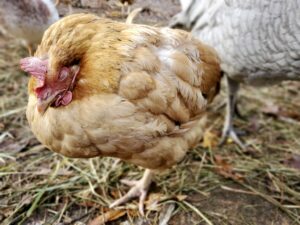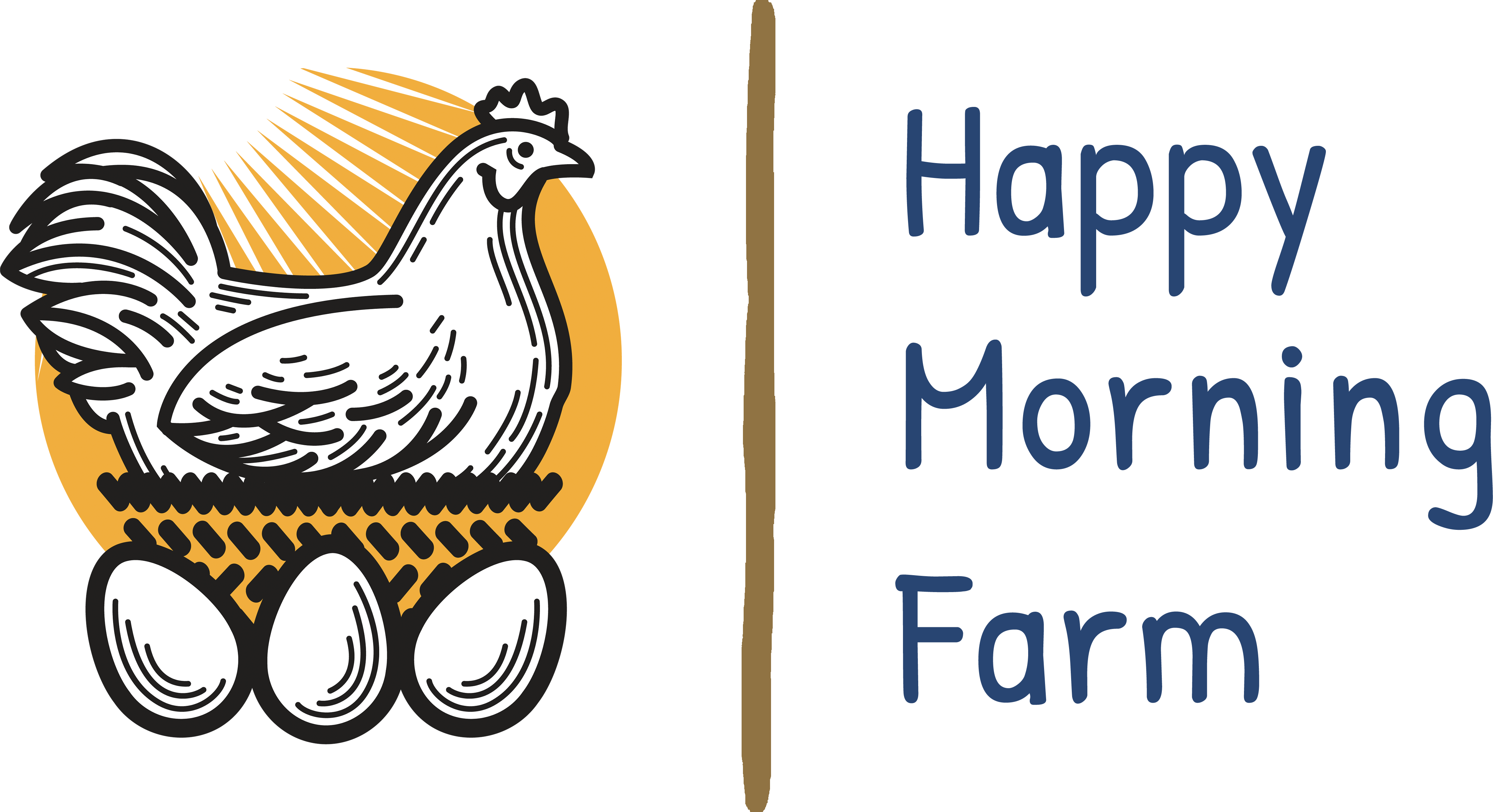Let’s Chat About Coccidiosis…
Coccidiosis is caused by Coccidia — a protozoan parasite that infects the intestinal tract of chickens. With a typical life cycle of 1 week, it’s often just treated as such (for 1 week); however, many people find that it comes back again shortly thereafter — and that’s because they don’t treat it for long enough. Chicken health is an important topic, and understanding not only how Coccidiosis presents itself in your flock, but also how it’s spread (through fecal matter) and what the ramifications are of treating it — especially if you’re collecting eggs to eat!

SIGNS + SYMPTOMS:
- Hunched over
- Eyes closed
- Blood in loose droppings (sometimes)
- Mucus in corners of eyes
- Anemia (pale comb & wattles)
- Ruffled feathers
- Loss of appetite (& weight loss)
TREATMENT
It is recommended to treat Coccidiosis with CORID (amprolium 9.6% solution) by adding 2 tsp per gallon of water, changed daily as the ONLY source of water — and treat whole flock for 5–7 days. Do NOT give other medications OR vitamins during treatment; only CORID water and feed.
After one week, follow up with 1/2 tsp per gallon for an additional week to kill any remaining protozoa. This is what is recommended for a severe outbreak. If non-severe, use only 1 tsp per gallon to treat chickens for Coccidiosis.
After treatment days are over, give Poultry Cell in water done the same way for 3-4 days to replenish vitamins. Coccidia lives on the vitamin thiamine (b1); and CORID strips all vitamins, therefore killing the Coccidia. That’s why we recommend only giving CORID water and feed during treatment days — and liquid vitamins after treatment days.
Homeopathic treatment (& prevention) methods include offering crushed garlic, honey in food, as well as a Tbsp of ACV in water. Although ACV has not been scientifically proven to actually help with or prevent Coccidiosis, many chicken farmers swear by it and give it occasionally as a preventative (perhaps monthly, not all the time).
A Note on Egg Withdrawal
Amprolium (CORID) is approved for use in laying hens by the FDA, which means there is no egg withdrawal period when using it. Eggs laid by hens may be eaten during and after treatment with amprolium. Additionally, there is no egg withdrawal period when using Rooster Booster Poultry Cell either.
Source: Merck’s Veterinary Manual, Boehringer Ingelheim.
Written by: Clif Castleman (who is completing his Veterinary Poultry Science degree)
